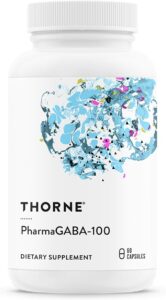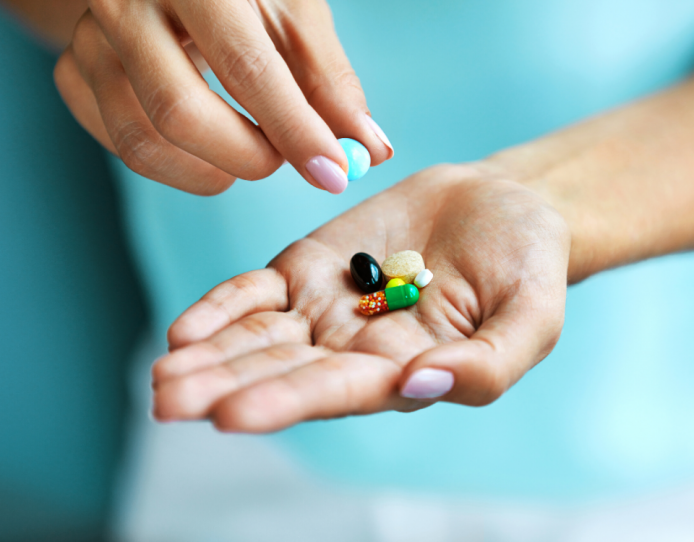How Healing Your Gut Can Solve Your Sleep Problems

Sleep disorders can feel like a never-ending cycle of sleepless nights and groggy days. If you’re struggling with insomnia, restless sleep, or waking up unrefreshed, you’re not alone. But are sleep disorders curable? To truly address this question, we need to look beyond the brain and focus on the gut—the often-overlooked root cause of many sleep issues.
Emerging research highlights the connection between gut dysbiosis and sleep disorders, revealing how the gut microbiome influences two key players in sleep regulation: GABA and melatonin. Let’s dive into the science behind this connection and explore actionable strategies for restoring balance.
How Gut Dysbiosis Leads to Sleep Disorders
The health of your gut microbiome plays a critical role in regulating sleep. Gut dysbiosis—an imbalance in gut bacteria—can disrupt the production of neurotransmitters and hormones essential for sleep. This imbalance creates a cascade of negative effects on sleep quality, mood, and overall health.
- GABA Dysfunction
When levels of GABA-producing bacteria decline, GABA synthesis in the gut decreases. This leads to heightened anxiety and hyperarousal, making it harder to relax and fall asleep. Disruptions in GABA production also impair deep sleep phases, including REM sleep, leaving you feeling unrefreshed. - Melatonin Disruption
Gut dysbiosis limits the gut’s ability to produce melatonin, the hormone responsible for regulating circadian rhythms. This results in circadian misalignment, poor sleep quality, and fragmented sleep cycles. Dysbiosis-induced inflammation further exacerbates this cycle, making restful sleep even harder to achieve.
Understanding this gut-sleep connection is crucial for addressing sleep disorders holistically. Let’s break down the specific roles of GABA and melatonin in this process.
GABA: The Brain’s Relaxation Switch
What Is GABA?
GABA, or gamma-aminobutyric acid, is your brain’s primary inhibitory neurotransmitter. Think of it as your brain’s “off switch”, reducing neuronal excitability and creating a calming effect. GABA plays a vital role in:
- Reducing anxiety and promoting relaxation
- Inducing sleep by calming overactive nerve signals
- Preventing insomnia by slowing down the central nervous system
Gut Bacteria and GABA Production
Your gut is deeply involved in GABA production. Beneficial bacteria, such as Lactobacillus and Bifidobacterium, can produce GABA through the gut-brain axis. However, when gut dysbiosis occurs, GABA production can decline.
This imbalance leads to:
- Increased anxiety and difficulty relaxing
- Trouble falling asleep, as your brain struggles to “switch off”
- Disrupted REM sleep, resulting in fragmented and unrefreshing rest
Key Statistic: Research has found that individuals with gut dysbiosis and sleep disorders had significantly lower levels of GABA-producing bacteria, including Lactobacillus strains.
The Role of GABA in Sleep Disorders
Low GABA levels are linked to insomnia, anxiety, and restless leg syndrome (RLS). Studies show that people with chronic insomnia have up to 30% lower GABA levels in their brains compared to those without sleep issues. Gut dysbiosis compounds this issue by further reducing GABA production, which can worsen sleep quality.
To counter this, restoring gut health with probiotics, such as Lactobacillus rhamnosus, can boost GABA production, helping you relax and sleep better.
Melatonin: The Sleep Hormone with Gut Origins
What Is Melatonin?
Melatonin is the hormone that regulates your circadian rhythm, or sleep-wake cycle. While most people associate melatonin with the brain’s pineal gland, your gut produces 400 times more melatonin than your brain.
Gut-derived melatonin is essential for:
- Aligning your circadian rhythm, ensuring a consistent sleep-wake schedule
- Promoting deep, restorative sleep
- Reducing inflammation, which indirectly supports sleep health
Key Statistic: The gut microbiome produces 400 times more melatonin than the pineal gland, highlighting the gut’s major role in sleep regulation.
Melatonin and Dysbiosis: A Disruptive Connection
Melatonin is a cornerstone of healthy sleep, but its production is heavily influenced by the gut microbiome. A 2022 study on the melatonin–microbiome interaction revealed that gut dysbiosis disrupts melatonin synthesis, exacerbating sleep disorders and other health issues.
When gut bacteria are imbalanced, melatonin production decreases, leading to:
- Sleep onset difficulties, as falling asleep takes longer
- Poor sleep quality, with light or fragmented sleep
- Circadian rhythm misalignment, particularly for shift workers or those with irregular schedules
- Digestive issues and chronic inflammation, further worsening overall health
Key Insight: The study emphasized that melatonin supplementation alone might not fully resolve sleep disorders unless gut health is addressed. Dysbiosis undermines the body’s ability to produce melatonin naturally.
Chronic conditions like IBS or IBD further complicate this relationship. Inflammation caused by these disorders interferes with serotonin’s conversion to melatonin, explaining why IBS patients report up to 60% higher rates of insomnia compared to the general population.
Steps to Improve Sleep Through Gut Health
Addressing gut dysbiosis and sleep disorders requires a well-rounded approach. Here’s how to get started:
- Optimize Your Diet
- Include prebiotic foods like garlic, onions, and bananas to feed beneficial gut bacteria.
- Incorporate fermented foods like yogurt, sauerkraut, and kimchi to introduce probiotics naturally.
- Supplement Strategically
- Use targeted supplements like probiotics (Lactobacillus rhamnosus), magnesium, and melatonin to restore balance and improve neurotransmitter production.
- Manage Stress
- Chronic stress disrupts the gut-brain axis. Practices like yoga, meditation, and deep breathing can help regulate stress and improve gut health.
- Realign Your Circadian Rhythm
- Stick to a consistent sleep schedule. Prioritize exposure to natural light during the day and reduce blue light exposure at night to enhance melatonin production.
My Top Recommendations
These are the supplements I personally use or trust for their exceptional quality and effectiveness. They’re designed to support relaxation, better sleep, and overall well-being.
- THORNE PharmaGABA-100
 A natural GABA supplement that helps promote calmness and restful sleep with clean, allergen-free ingredients.
A natural GABA supplement that helps promote calmness and restful sleep with clean, allergen-free ingredients. - Pure Encapsulations Magnesium Glycinate
 This premium magnesium supplement supports stress relief, relaxation, and the sleep cycle, while also aiding metabolism and heart health.
This premium magnesium supplement supports stress relief, relaxation, and the sleep cycle, while also aiding metabolism and heart health. - Sports Research L-Theanine
 Featuring patented Suntheanine, this supplement encourages calmness and focus without causing drowsiness.
Featuring patented Suntheanine, this supplement encourages calmness and focus without causing drowsiness. - Herb Pharm Lemon Balm Extract
 An organic, alcohol-free herbal extract that soothes the nervous system to help you wind down for the night.
An organic, alcohol-free herbal extract that soothes the nervous system to help you wind down for the night. - Life Extension Melatonin
 A low-dose, 500 mcg melatonin supplement that gently promotes sleep, supports cellular health, and fights oxidative stress.
A low-dose, 500 mcg melatonin supplement that gently promotes sleep, supports cellular health, and fights oxidative stress.
I’ve done the research so you don’t have to. These are the products I trust to help you achieve deep, restorative sleep. For more options, I invite you to explore my full sleep support stack—a curated collection of supplements I personally use or recommend.
Conclusion: Are Sleep Disorders Curable?
Yes, but healing sleep disorders requires more than just addressing symptoms—it involves tackling the root cause. By focusing on gut health, you can improve GABA and melatonin production, reduce inflammation, and realign your circadian rhythm.
Sleep disorders like insomnia, restless leg syndrome, and even circadian rhythm disruptions are deeply connected to the health of your gut. Restoring balance in your gut microbiome with the right dietary changes, stress management techniques, and supplements can help you achieve restful, restorative sleep—and reclaim your energy and vitality.
References
Ballou, S., Katon, J., Rangan, V., Cheng, V., Nee, J., Iturrino, J., & Lembo, A. (2020). Brief behavioral therapy for insomnia in patients with irritable bowel syndrome: a pilot study. Digestive Diseases and Sciences, 65, 3260-3270.
Iesanu, M. I., Zahiu, C. D. M., Dogaru, I. A., Chitimus, D. M., Pircalabioru, G. G., Voiculescu, S. E., … & Zagrean, A. M. (2022). Melatonin–Microbiome two-sided interaction in Dysbiosis-associated conditions. Antioxidants, 11(11), 2244.
Sejbuk, M., Siebieszuk, A., & Witkowska, A. M. (2024). The role of gut microbiome in sleep quality and health: Dietary strategies for microbiota support. Nutrients, 16(14), 2259.
Tette, F. M., Kwofie, S. K., & Wilson, M. D. (2022). Therapeutic anti-depressant potential of microbial GABA produced by Lactobacillus rhamnosus strains for GABAergic signaling restoration and inhibition of addiction-induced HPA axis hyperactivity. Current Issues in Molecular Biology, 44(4), 1434-1451.
Winkelman, J. W., Buxton, O. M., Jensen, J. E., Benson, K. L., O’Connor, S. P., Wang, W., & Renshaw, P. F. (2008). Reduced brain GABA in primary insomnia: preliminary data from 4T proton magnetic resonance spectroscopy (1H-MRS). Sleep, 31(11), 1499-1506.
Share
Who is Shawn Wells?
Although I’ve suffered from countless issues, including chronic pain, auto-immunity, and depression, those are the very struggles that have led me to becoming a biochemist, formulation scientist, dietitian, and sports nutritionist who is now thriving. My personal experiences, experiments, and trials also have a much deeper purpose: To serve you, educate you, and ultimately help you optimize your health and longevity, reduce pain, and live your best life.
ORDER THE ENERGY FORMULA
Discover the 6 foundational pillars to cultivate a more caring, compassionate, connected, unified and purpose-filled life.



